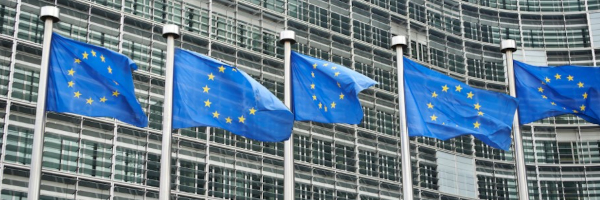
2022.04.01. Updated
Erasmus+ and European Solidarity Crops in Ukraine and Russia
On 11 March 2022, the European Commission issued a new note on changes in its mobility programmes in response to the situation in Ukraine.

The European Commission, in cooperation with the National Agencies, is determined to support to the greatest possible extent, through the Erasmus+ and the European Solidarity Corps programmes, Ukrainian students, young people, teachers and educators in these extremely challenging times. The programmes have a long-standing tradition of promoting understanding and solidarity among people from all countries and all backgrounds – which is now more important than ever. The Commission aims to facilitate the integration of Ukrainian participants in activities offered by the programmes.
The Erasmus and European Solidarity Corps communities reach out to a wide spectrum of players in our society: schools, universities, VET providers, youth and sport organisations, NGOs, local and regional authorities, civil society organisations, etc. These stakeholders are currently spontaneously engaging to help their Ukrainian counterparts and could benefit from the opportunities already offered by the programmes’ architecture to carry out their activities.
Therefore, the Commission is cooperating with the National Agencies to provide these players an opportunity to refocus their relevant activities to support people displaced by war. Beneficiaries of ongoing KA1 projects (Erasmus+ 2021-2027), KA2 Strategic Partnerships (Erasmus+ 2014-2020), as well as Cooperation Partnerships and Small-Scale Partnerships (Erasmus+ 2021-2027) are invited, on a voluntary basis, to reallocate part of their project funds on activities to support Ukraine. Beneficiaries of European Solidarity Corps projects are invited to adapt, on a voluntary basis, the focus of the impacted activities to contribute to relief/assistance to people affected by the war.
Not only ongoing projects are affected by the situation in Ukraine: for the upcoming rounds of Erasmus+ and the European Solidarity Corps, the Commission encourages applicants to focus on aspects related to the Ukraine war and its effects – to include activities linked to the integration of Ukrainian refugees, the promotion of European common values, the fight against disinformation and fake news, or solidarity and unity. These topics are well embedded into the programmes, with inclusion and diversity as well as participation and civic engagement being key priorities.
Tempus Public Foundation provides regular updates on the changes in the Erasmus+ and European Solidarity Corps programmes and new initiatives to help refugees in Ukraine.
| Mariya Gabriel, Commissioner for Innovation, Research, Culture, Education and Youth, has released a statement about the Commission’s ongoing efforts to help Ukrainian refugees, in cooperation with National Agencies and experts from Member States. On 8 March 2022, the European Commission adopted a proposal for Cohesion's Action for Refugees in Europe (CARE), which will introduce the necessary flexibility in the 2014-2020 Cohesion policy rules to allow a swift reallocation of available funding from the European Regional Development Fund (ERDF), the European Social Fund (ESF) and the Fund for the European Aid to the Most Deprived (FEAD) to finance a wide range of measures supporting people fleeing Ukraine. |
European Commission sent information to the National Agencies on 25 February about the situation in Ukraine and Russia.
According to the note National Agencies can apply the force majeure procedure to projects participating in Erasmus+ and the European Solidarity Crops, which taking place in Ukraine or Russia.
Beneficiaries may thereby cancel, postpone or move activities planned in both countries in the most flexible way, notwithstanding the respect of the general legal framework applying to Erasmus+ and the European Solidarity Corps. Given the exceptional circumstances, the same principles can be applied also to incoming mobility.
More specifically:
- On ongoing Erasmus+ and European Solidarity Crops projects in Ukraine or Russia involving participants from Associated States or third countries associated to the programmes: the force majeure procedure may be applied for the early termination of activities in Ukraine or Russia. Returning participants should be fully reintegrated in the sending organization whilst the possibility to continue activities in a virtual modality with host institution/organization should be explored. Justified repatriation costs will be accepted as exceptional costs, whereas normal reporting requirements apply. This option also applies to any ongoing mobility in an Erasmus+ third country neighbouring Ukraine.
- On ongoing incoming Erasmus+ and European Solidarity Corps mobility to Member States and third countries associated to the programmes and involving Ukrainian participants: For all Ukrainian participants currently in an other country, beneficiaries are encouraged to explore possibilities to prolong their stay within the programme’s rules.
- On planned activities of Erasmus+ and the European Solidarity Crops in Ukraine: it is recommended to consider alternative options for the implementation of projects (e.g. change of destination country) or if the action allows switching them into incoming mobilities (e.g. hosting Ukrainian participants).
We will keep you informed on further guidance and decisions in this context. If you have any questions regarding the applications, please contact our staff: info@tpf.hu
Last modified: 21-04-2022















